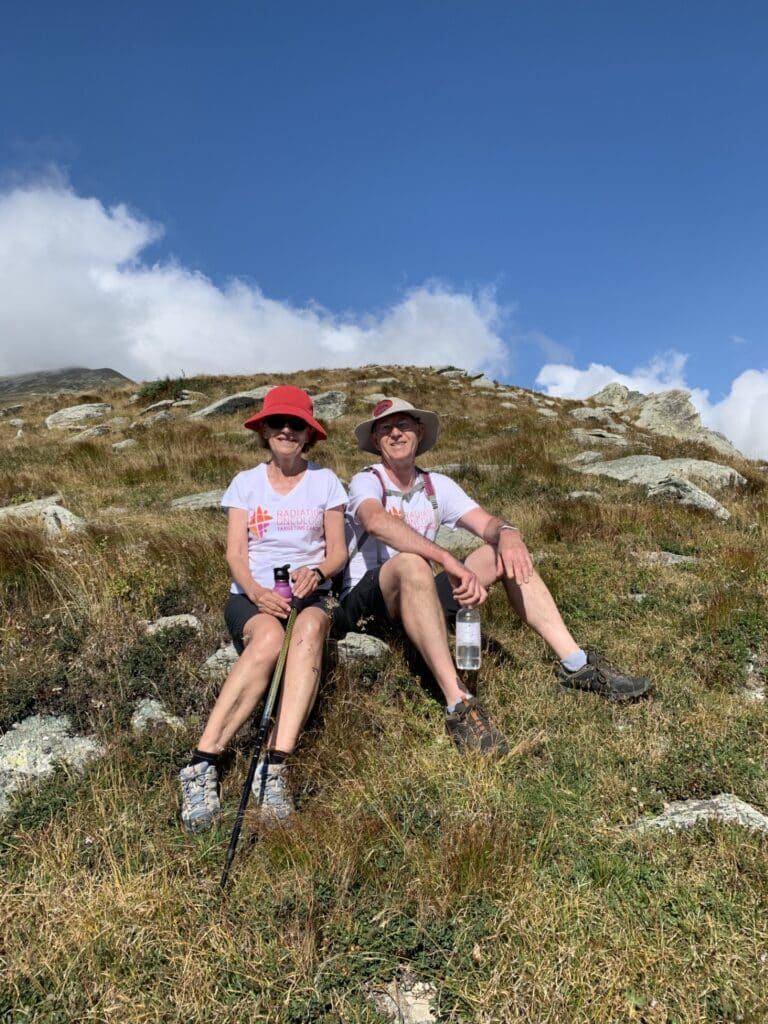When Lee Hunt was diagnosed with Grade 3 HER2-positive breast cancer in 2005, she hadn’t realised that the treatment she was about to undergo carried risk factors for her heart health.
“I actually wasn’t even told by my oncologist that there was a risk,” says Lee, noting she first became aware of the increased risk factor from “a friend who had read an article about it”.
At the time, the side effects of Herceptin, one of the treatments she received, weren’t very well known, as it was a relatively new drug in Australia.
“About five years after I stopped, finished all my treatments, I started fainting, just out of the blue,” Lee says. “It was getting quite more common, suddenly feeling really dizzy, and sometimes I could catch myself and get into a chair or something, but other times I couldn’t.”
Following these fainting spells, Lee went to seek help from her GP, who saw she had high blood pressure and referred her to a haematologist– specialist doctors who diagnose and treat all kinds of blood diseases.
When the haematologist learned of Lee’s history with cancer, luckily, they knew to send her to seek advice from a cardiologist.
There, Lee found that she experienced reduced heart function whilst undertaking Trastuzumab ( a form of Herceptin) as well as long-term cardiotoxicity from her chemotherapy treatment.
Cardiotoxicity is damage or dysfunction of the heart muscle that’s caused by medications or treatments, and recognising the signs early is crucial to intervention and management.
“I was very fortunate that [the] haematologist had the sense to send me off straight away to a cardiologist,” Lee says.
While advances in breast cancer treatments have improved survival rates considerably over the last 30 years, research now shows that survivors of breast cancer are at a higher risk of cardiovascular disease than individuals without a history of cancer.
And women diagnosed with breast cancer have a higher risk of developing cardiovascular complications, such as heart failure, heart attacks and hypertension.
Join Breast Cancer Trials on Wednesday 7 August from 5-6:30pm (AEST) for a free online Q&A, where leading researchers and women with a history of breast cancer will discuss the link between breast cancer and heart health. The session will be moderated by author and journalist Annabel Crabb. To register click here.

Optimising long-term health outcomes
The relationship between breast cancer and heart health underscores the importance of comprehensive care for breast cancer patients.
For Lee, when she first started taking Herceptin, it was a relatively new drug at the time, in Australia, and was showing very good promise for treating HER2 positive breast cancers, which have a very high rate of recurrence.
“I started on this drug because my oncologist was very much advocating [for it], and she just tried to get a lot of us on it because it was going to make a big difference to my outcome,” Lee says.
“But at that stage, they thought it was only about a 4 per cent chance of having any problems with your heart.”
Since then, more research has emerged on Herceptin, and the patients are advised to follow the advice of their doctors, who can check for signs of heart problems before, during and after treatment.
In hindsight, Lee says having more awareness of the side effects for her treatment would have helped her along the breast cancer journey.
“If I had done a little bit more reading, and if I’d been a bit more prepared for the side effects, then maybe I would have been able to manage them better,” Lee says.
“There’s lots of research going on in this area, which is great, but I just live each day for each day.”

Since finishing her treatment as well, Lee has been heavily involved in advocacy and research to help other people going through similar breast cancer diagnoses to her own.
“After my first cancer diagnosis, what I did is what’s called consumers involved in research training with Cancer Council, New South Wales. And then from there, I joined Cancer Voices, which is a cancer advocacy group, and then it’s sort of just grown,” she says.
Lee was a member of Cancer Voices executive group for eight years and the Faculty of Radiation Council (RANZCR) for six years.
She is also a member of the COSA Financial Toxicity Working Group and COSA/CSANZ Cardio Oncology Working Group as well as a member of several cancer research teams, with three projects in the clinical trial phase, and has authored and co-authored several publications.
On Wednesday 7 August from 5-6:30 pm (AEST), Lee will be joining Breast Cancer Trials’ free Q&A webinar, to share her experience with the long-term impact of breast cancer treatment on her heart health.
Moderated by Author and Journalist, Annabel Crabb, the webinar will also feature a panel of experts, who will explore the nature, prevalence and management of cardiotoxicity and cardiovascular disease after breast cancer; strategies for prevention; a multidisciplinary team approach to risk management including the role of GP’s and cardiologists; and self-management strategies to reduce cardiovascular risk.
To register for the event, more information can be found here.

